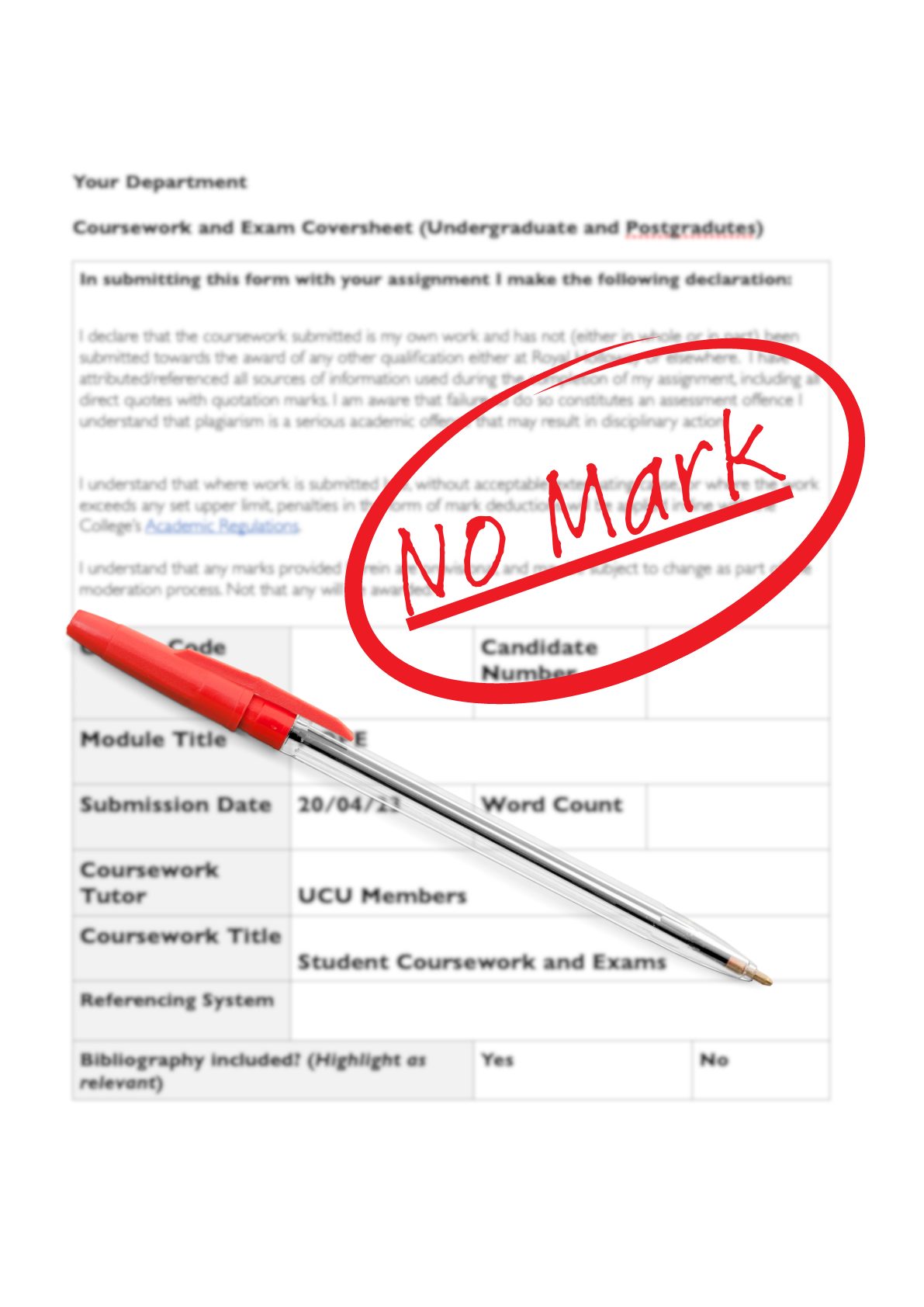The University and College Union (UCU), which represents over 120,000 academic staff, announced yesterday that they intend to conduct a Marking and Assessment Boycott (MAB) from the 20th April. In a press statement by Royal Holloway’s UCU branch, a spokesperson said “Union members will not undertake any work relating to the grading and/or assessment of summative coursework or exams.”
The decision does not come lightly, having been described as the ‘nuclear’ option available from the arsenal of different types of industrial action that the union can partake in. This is the most recent development in the dispute on pay and pensions, and job security/work conditions – both of which have seen major on-going strike action since 2018 as negotiations continue. The statement continues “…the MAB delays the grading and assessments that underpin basic running of the university. If it goes on for more than a few weeks, the delay of marks may threaten important events in the university calendar, such as graduations and/or progressing.”
We talked with students on campus as well as conducting a survey about their reactions to the annoucement of a MAB by the UCU:
“I am concerned about whether this will affect my ability to graduate in the summer. I need my final degree mark to be able to progress further in my academic career and without these results I am concerned whether that will affect my future. I understand what the UCU are doing and will support them however they need to address the repercussions that’ll effect students, especially those in their final year of study.”
“It’s the right thing to do, although frustrating we’re in a period where stuff needs to change.”
“The negative effects of the boycott will disproportionally effect graduating students significantly more so than the people they are attempting to convince and is such a harmful and unethical means of effecting change.”
The Survey is on-going and takes less than 60 seconds to complete, we would love to hear from student and academic staff voices on and off campus. The link to the survey can be found at the bottom of this article.
Whether University and College administrations can work with the UCU to resolve the issues leading to the boycott is to be seen. UCU members recently voted in an “overwhelming majority” to continue their industrial action, in part as the national representatives had not seen anything near the results they had hoped for. The knock-on effect of this could see progression across the entire higher education sector halted, as university students fail to progress to their next years or graduate; A-level students would not have access to university’s due to the oversubscription of courses as students are held back. At the time of publishing, Royal Holloway has yet to release a statement to students about the boycott and have yet to answer questions on what this will mean for students, especially for those who are on track to graduate and/or progress to their next academic years.
Of course, many students will be concerned for the future of their studies. Further strike action could lead to less teaching and further disruptions to university life. Currently, the UCU has stated that union members will continue to teach, research and conduct administrative and pastoral roles during the MAB. This stronger and more drastic strike action could later see a combination of types of industrial action being utilised, furthering disruptions across campuses nationally.
Freddie Lee
Assistant Station Manager of Insanity Radio
Survey On UCU industrial action conducted by Insanity Radio can be found here: https://forms.gle/NZNhp4xUJXeABYxx6
Further information relating to the action being taken place on the 20th April and onward at RHUL can be found here: https://royalhollowayucu.wordpress.com/blog/
This article aims to provide a fair and balanced coverage of the strike action and related issues. The author has taken care to present multiple perspectives and viewpoints and has made every effort to avoid bias or favouritism towards any particular group or position. The information presented in this article has been gathered from a variety of sources, including official statements and interviews with individuals involved/affected in the upcoming strike action. Where possible, the author has verified the accuracy of the information presented through additional research and fact-checking. Any opinions or analysis presented in this article are solely those of the author and do not necessarily reflect the views of the publication or its editors. The goal of this article is to inform readers about the strike action and the issues it raises, and to encourage discussion and debate on these topics. In addition, please note that this article is current as of the publication date, and the situation surrounding the strike action and related issues may continue to evolve over time. The author and the publication will make every effort to update the article as new information becomes available and may make changes or corrections to the content as necessary. Readers are encouraged to check back periodically for updates and to consult additional sources for the most up-to-date information on this topic. We welcome feedback from our readers and encourage anyone with additional information or perspectives on this topic to reach out to us.
